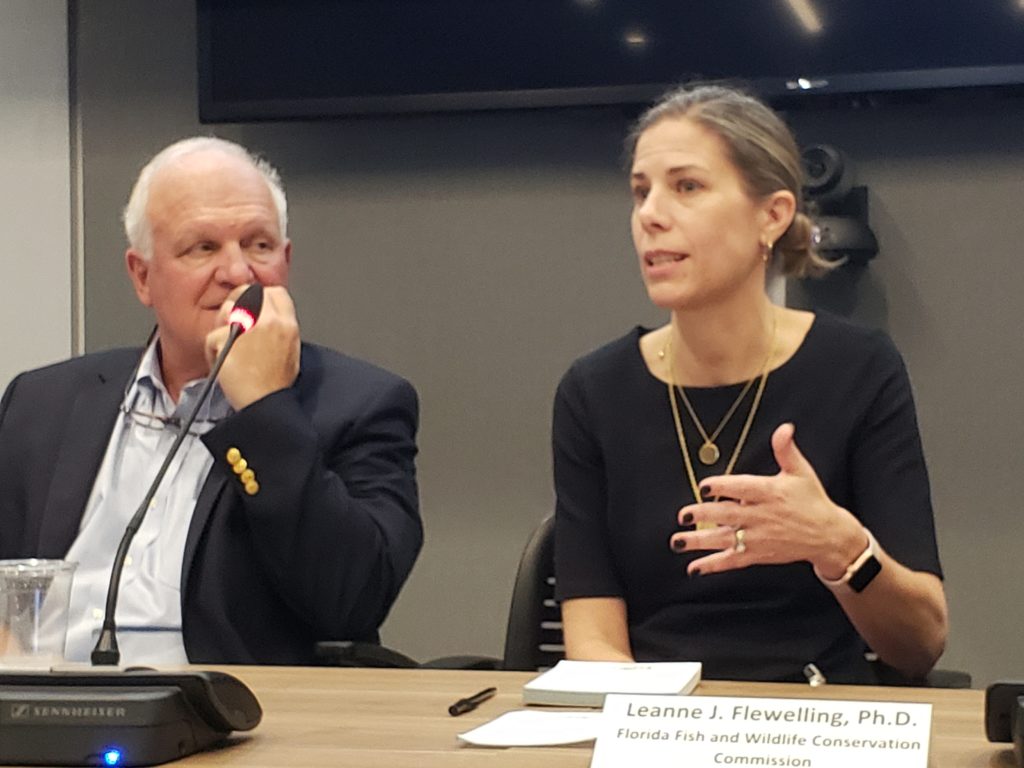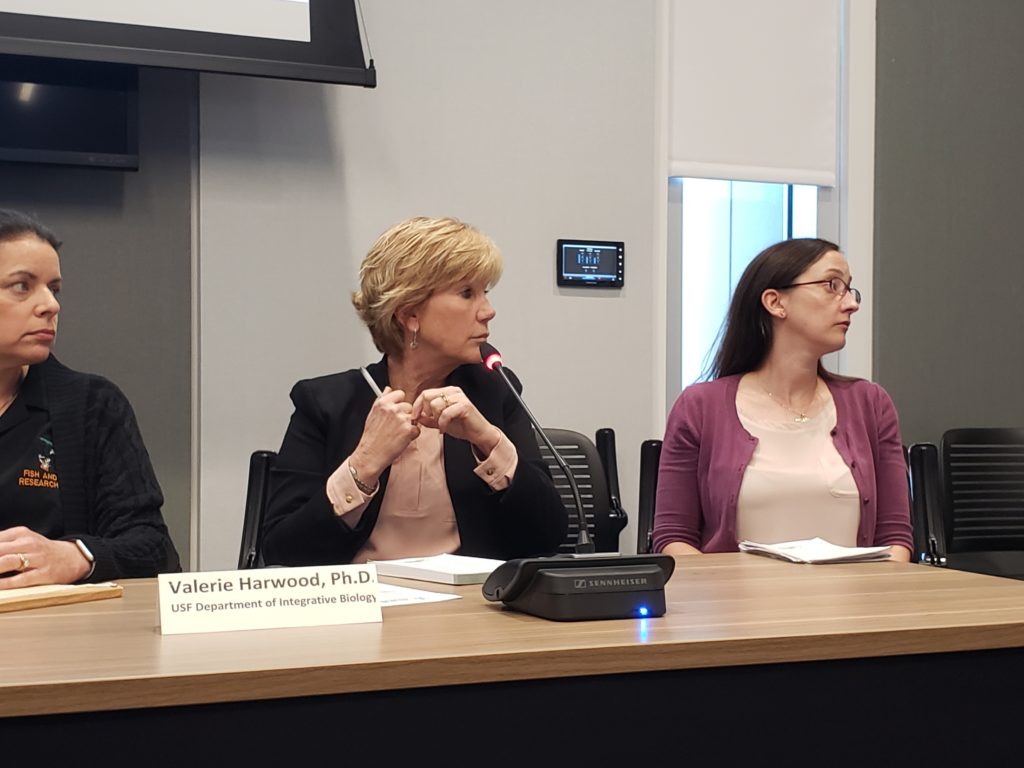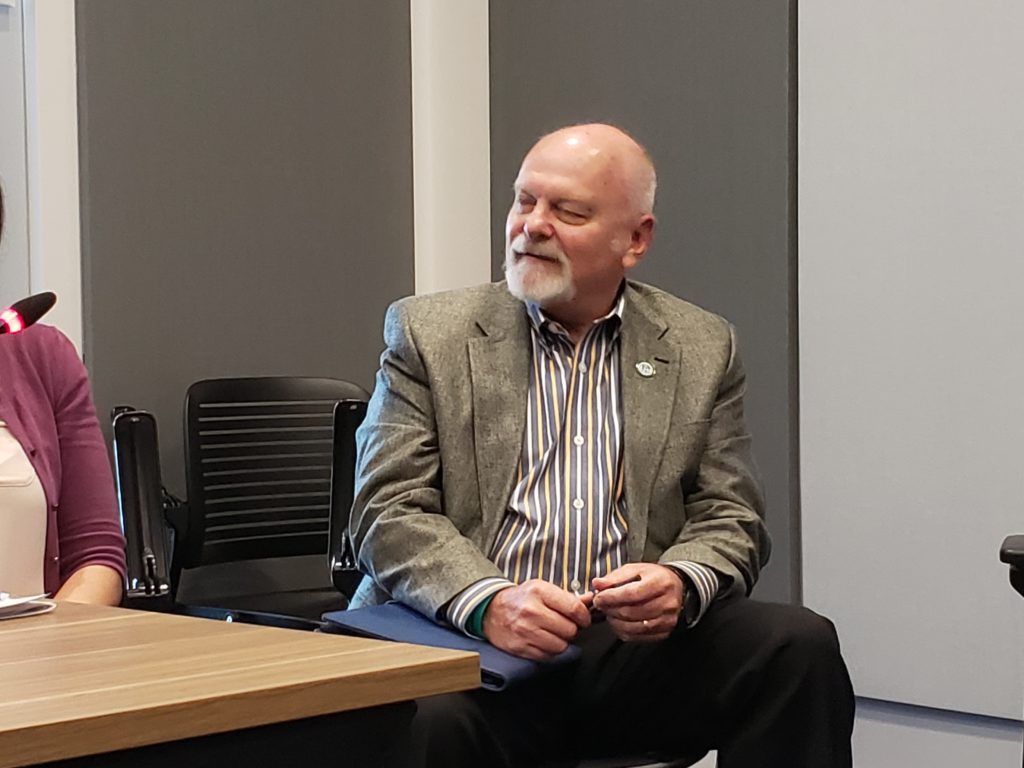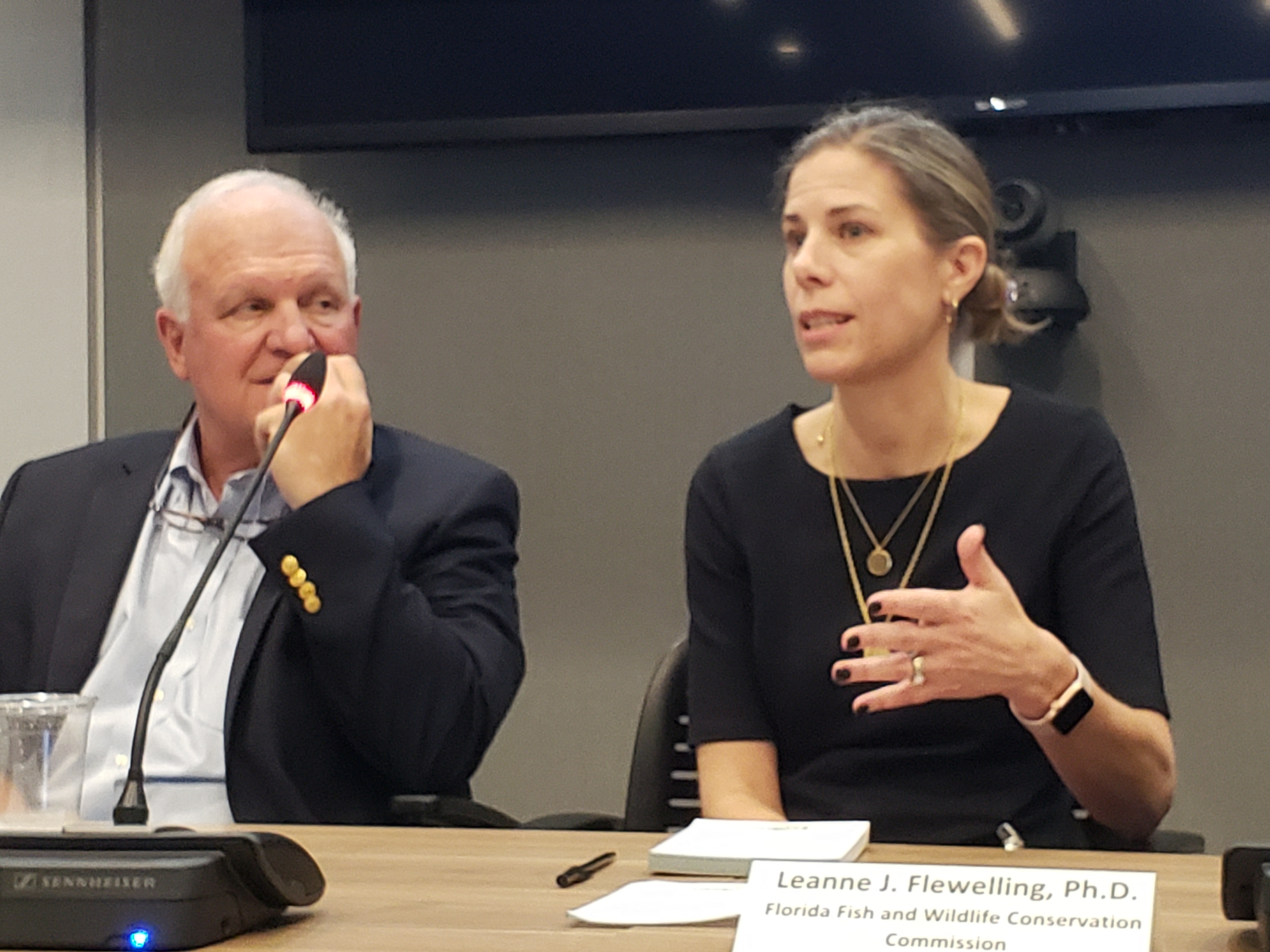
By Dylan Hart
While the Justice League and the Avengers assemble at the box office, USF St. Petersburg is aiming to build a superteam of its own.
But it won’t be fighting crime or cosmic threats. Instead, this team — the Joint Institute for Gulf of Mexico Studies — wants to solve health issues along our coast.
The institute, which is headed by former USF St. Petersburg regional chancellor and marine scientist Bill Hogarth, brings together experts from various fields, including biology, medicine, marine science, sociology and engineering, all from states bordering the Gulf of Mexico.
Decades of oil spills, red tide, hurricanes and other environmental issues led experts from all of these fields to study how these disasters have affected human health.
“I think that there’s a real opportunity to build a blueprint for monitoring data systems here,” said public health researcher Sarah Johnson at the March 27 institute panel at Johns Hopkins All Children’s Hospital.
“We have all mentioned data that exists in our own silo that we could bring to bear on this question. Now it’s just about addressing the gaps in that data.”
Hogarth said that USF St. Petersburg would be an ideal headquarters for the institute, saying that it’s “a perfect location” because of its proximity to other research facilities in the area, including the Fish and Wildlife Research Institute, Johns Hopkins, the USF College of Marine Science and USF Health.
The institute, which has been in the planning phase since July, is awaiting funding from the Florida legislature. The house bill was presented by Rep. Ben Diamond, D-St. Petersburg, and is awaiting consideration in the appropriations committee.
But while the institute wants to fund and drive a lot of research in various connected fields, the researchers have also indicated that they want to use the information gathered by the institute to influence government policy on infrastructure and the environment.
Valerie Harwood, a professor of biology at USF Tampa, said that she hopes the institute can help set up an advisory panel to state legislature for scientific information.

“The advisory panel could rank risks to oceans and human health,” Harwood said. “I know we can’t do this exactly — it’s too complicated — but it might appeal to folks who can’t understand the complexity of what we’re talking about, and then we can find some ways to address these top five or 10 issues.”
“This might be a way we can really influence — on a large scale — oceans and human health,” Harwood said.
The panel highlighted the difficulty of crafting informed policy.
“One thing that’s challenging is that the policy process is unencumbered by the evidence,” Johnson said. “Sometimes it’s because we failed to communicate it appropriately, but sometimes it’s failing to understand the myriad ways that policymakers are going to value and make decisions. And sometimes, that’s on us as scientists.”
Steve Murawski, a professor at the USF College of Marine Science, said that the institute would be well-positioned as a trustworthy adviser to politicians on scientific issues.
“The legislature is being bombarded by what I’d call persistent or instant experts on red tide,” Murawski said. “So how do they make sense of it all? If we could be an adviser that could say, ‘Look, this is what needs to get done,’ that could be incredibly helpful to the legislature.”

In conjunction with this, Hogarth said that he would like to work with experts from agencies within localized areas to gain perspective at city, county and state levels. Panelists also said they would like to see an economist working with the institute to bring a new perspective on the data.
Hogarth made it clear that the institute is not hiring researchers, but exists to organize and compile the research to make sure that it is sent to the right place.
“We’re not hiring people to do research,” Hogarth said. “We’re trying to get more money together and make researchers’ lives easier. We don’t think we need another huge bureaucracy built – we just need some organization. We’re trying to really get ahead of these issues and be a center for the Gulf of Mexico.”



